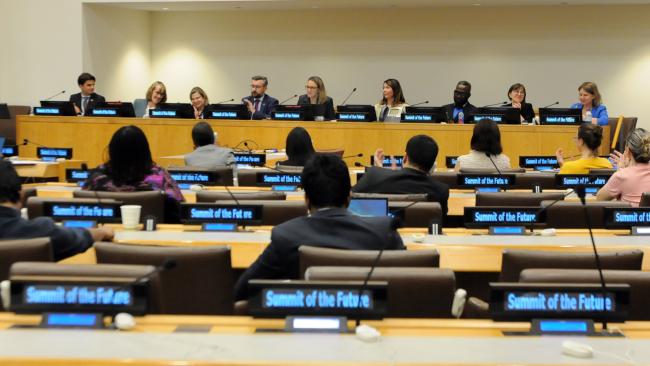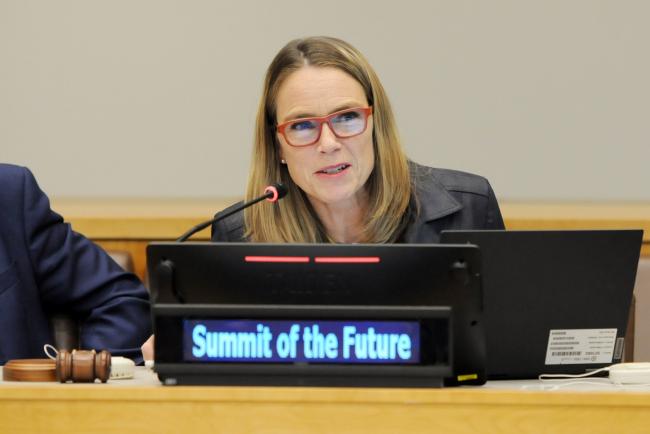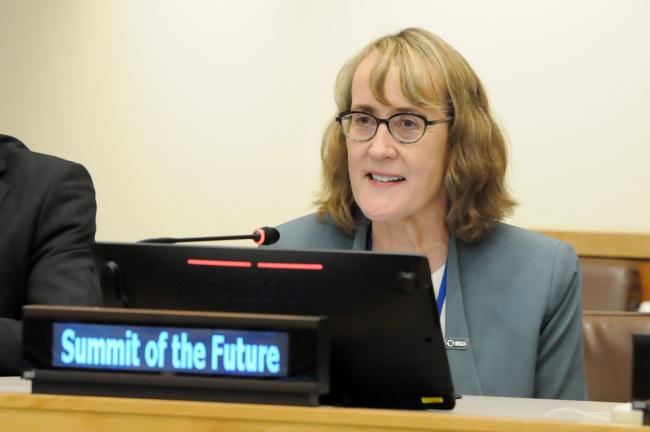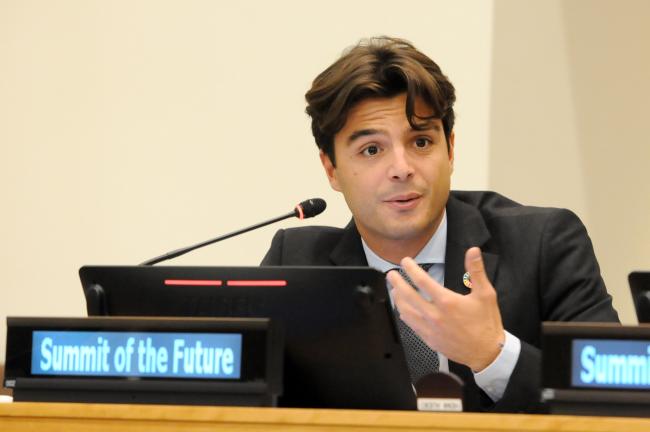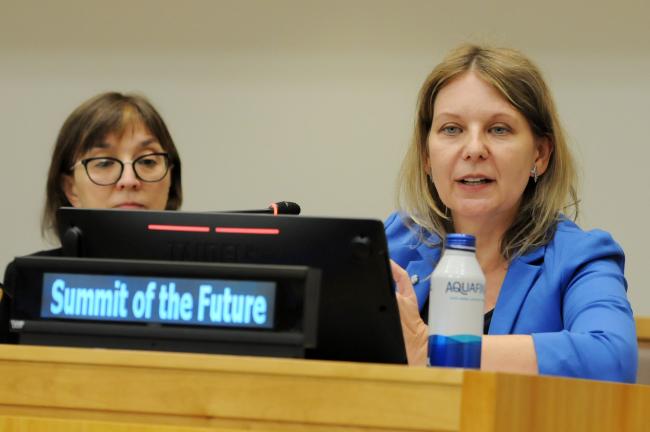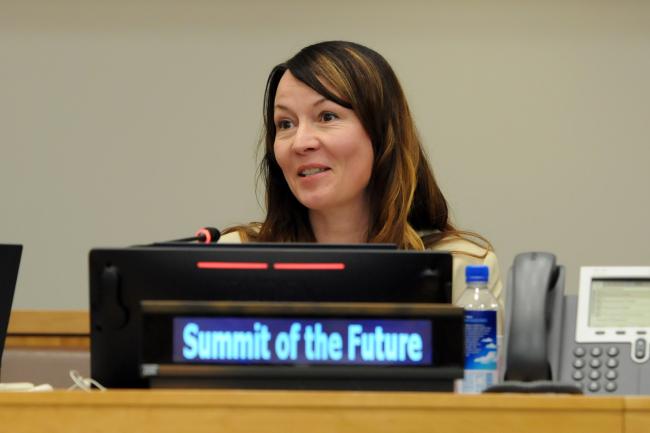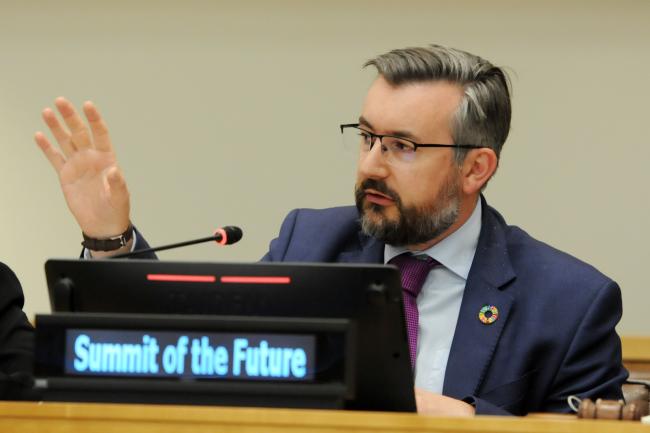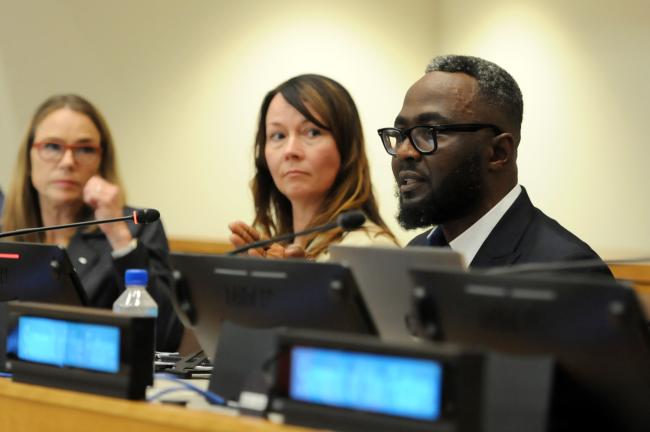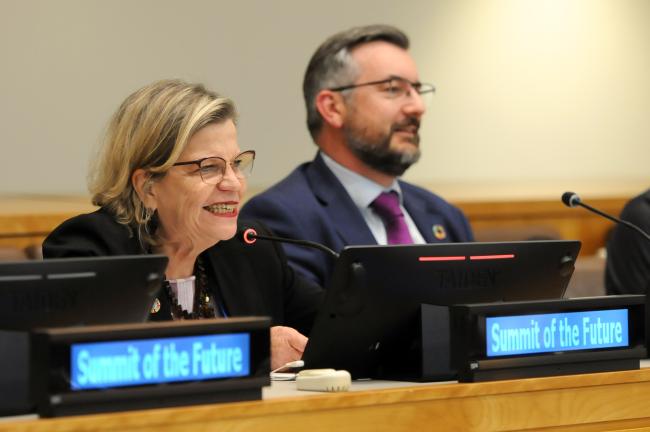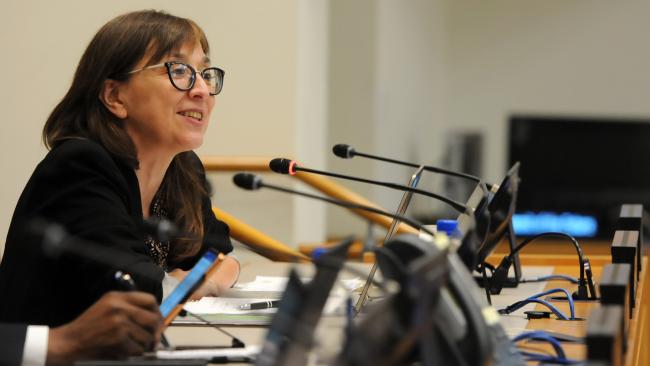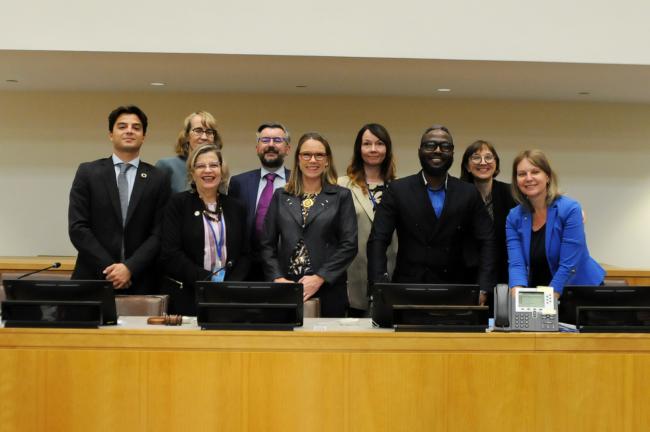Working With Countries to Move Beyond GDP and Promote Inclusive and Sustainable Development
For more than half a century, gross domestic product (GDP) has been widely accepted as the standard measure of economic health and national progress. Despite growing concerns about the continued use of GDP to guide national development—often leading to the prioritization of short-term gains over long-term sustainability—shifting away from it has remained challenging. Taking place during the Action Days of the Summit of the Future, a collaborative event organized by the International Institute for Sustainable Development (IISD) and the International Development Research Center (IDRC) brought together representatives from national governments, international agencies, and civil society to examine how complementary metrics can support efforts to meet the 2030 Agenda for Sustainable Development, along with practical steps to move beyond GDP to promote more inclusive and sustainable development.
Moderator Erin Tansey, Director, Sustainable Inclusive Economies Division, IDRC, stressed that moving beyond GDP is “extremely important” to help advance the 2030 Agenda.
Opening the event, Patricia Fuller, President and CEO, IISD, emphasized that while GDP has long been a useful tool for countries to allocate resources and drive growth, it should no longer be regarded as the sole "undisputed north star" of policymaking. Stressing that “statistics-as-usual” cannot drive wider progress, she described IISD research in Canada and three partner countries —Ethiopia, Indonesia, and Trinidad and Tobago—on measuring “comprehensive wealth,” which incorporates a country's natural, human, social, produced, and financial capital. She welcomed references to concrete measures aimed at moving “beyond talk about beyond GDP” in the Pact for the Future, including calls for an independent expert group to recommend complementary sustainable development indicators and the initiation of a UN-led intergovernmental process on finalizing the indicators recommended by the group.
Davide Fanciulli, Beyond Lab, UN Geneva, explained that the Beyond GDP Essay Competition invited young people to share their perspectives on the values and principles that should guide the shift beyond GDP. Highlighting common themes from the 630 essays submitted from over 50 countries, he emphasized a call for greater focus on values like equity, freedom, and sustainability, along with a new narrative of progress centered on collective well-being rather than individual success.
Livia Bizikova, Monitoring and Governance Lead, IISD, outlined the methodology behind the Moving Beyond GDP Through Comprehensive Wealth report, which presents the findings from a multi-year project funded by IDRC and carried out by IISD and partner institutions. The project measured comprehensive wealth for Ethiopia, Indonesia, and Trinidad and Tobago, testing the feasibility of alternative metrics that could be “robust, concise, widely accepted, comparable, and country-owned.” The report defines comprehensive wealth, she explained, as including natural, human, social, produced, and financial capital. It finds that while investments in produced capital are increasing, investments in human capital remain low. She also stressed that investment in natural capital is stagnating or declining, underscoring the urgent need to move beyond GDP. She concluded by emphasizing the need for capacity building to navigate national data and indices, with international support guiding resource investments.
A panel then explored practical dimensions of what moving beyond GDP means in their respective contexts. Anu Peltola, Director, UN Trade and Development (UNCTAD) Statistics, called for developing new metrics that are as robust as GDP but centered on equality, well-being, and sustainability, with a strong focus on resilience, participatory governance, and ethical, innovative economies.
Richard Heys, Office for National Statistics, United Kingdom, explained that the UK has gone through a “statistical journey” to measure comprehensive wealth since 2011. He stressed the importance of integrating the valuation of produced and natural capital to create meaningful narratives for the public.
‘Dapo Oyewole, Senior Special Assistant to the President of Nigeria on International Cooperation, called for policies prioritizing well-being, dignity, social cohesion, and planetary health. He emphasized that “It’s not about the economy alone, but how it makes people feel.” Oyewole highlighted how GDP measures can miss key realities, citing Nigeria’s 2012 GDP rebasing, which revealed previously misunderstood revenue sources.
Nadine Gasman Zylbermann, President, National Women's Institute of Mexico, stressed that feminist economists have long criticized GDP for overlooking domestic work, which is essential to sustaining life. She noted that in Mexico, care work is valued at USD 374 billion, with women contributing three-quarters of that. She questioned why such a significant contribution is excluded from measures of national wealth, pointing to societal assumptions that undervalue women’s labor.
Ana B. Moreno, Global Alliance for Care (GAC), reflected on earlier discussions about the care economy’s role in moving beyond GDP, highlighting the critical need for new metrics to capture gender equality, especially unpaid care work. She emphasized that the high-level expert group that will stem from the Pact for the Future must include voices from women, caregivers, and care recipients.
In response to a second question on capacity gaps and next steps at the international level, Peltola emphasized the need for a major capacity-building effort to address gaps in data, digital skills, and statistical systems. Heys highlighted the recent creation of a UN technical group to measure well-being, stressing the need for coordination, capacity building, and better data to support policy decisions, similar to the infrastructure behind GDP. Oyewole underscored the importance of inclusive metrics, capacity building for smaller countries, and ensuring that new approaches to measuring progress are integrated into policymaking processes. Gasman Zylbermann called for incorporating a gender perspective into national statistics, and Moreno stressed the importance of shifting the narrative on unpaid labor, which, she emphasized, represents 9% of global GDP.
Organizer: IISD and IDRC
www: https://www.iisd.org/projects/measuring-wealth-promote-sustainable-development
To receive free coverage of global environmental events delivered to your inbox, subscribe to the ENB Update newsletter.
All ENB photos are free to use with attribution. For this event, please use: Photo by IISD/ENB - Diego Noguera

